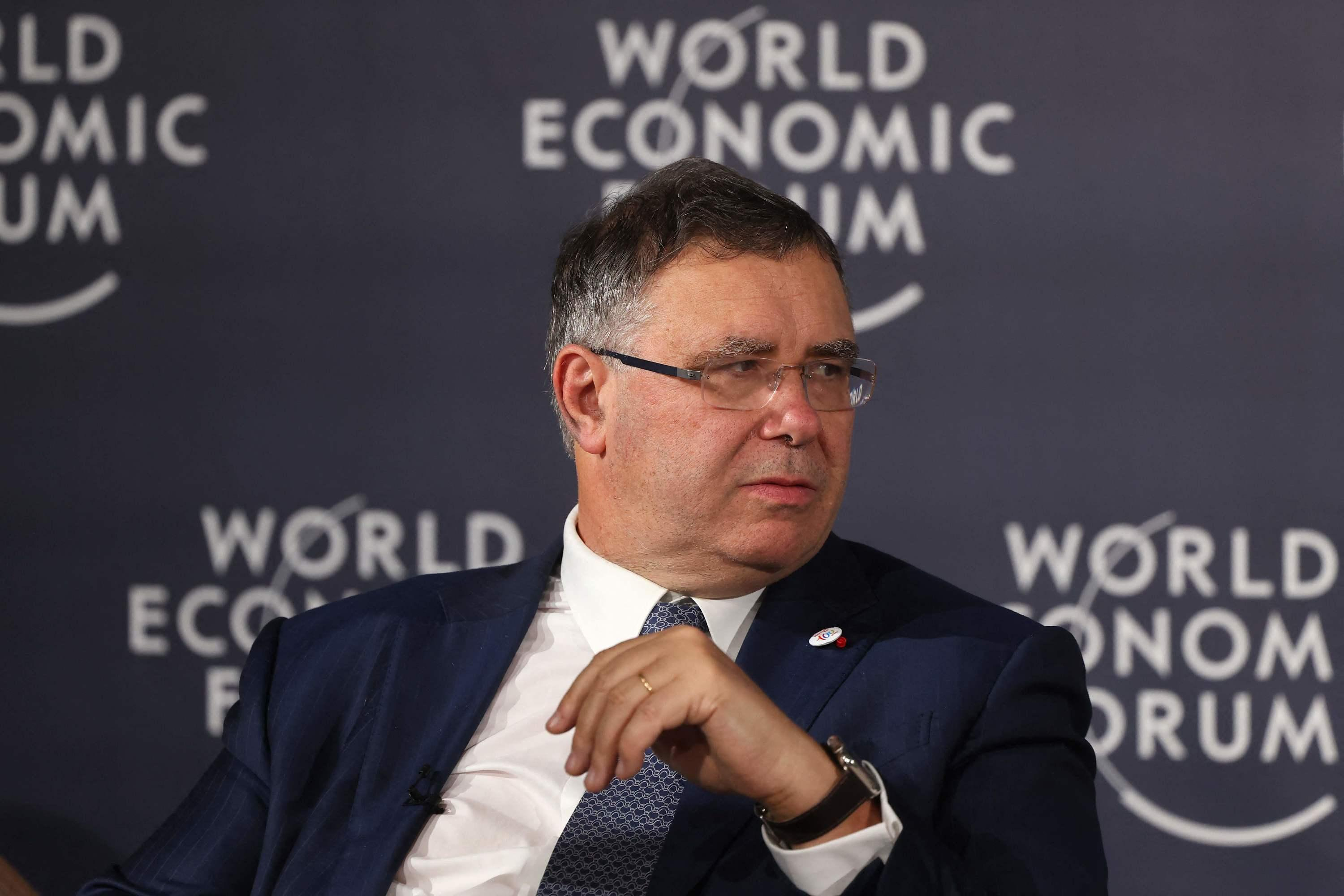Is France better than its German neighbor on renewable energies? This is what Agnès Pannier-Runacher said this Wednesday morning on Franceinfo, the day after an agreement between the Twenty-Seven on a reform of the European electricity market. “To remind you of one thing, France today has more renewable energy in its final consumption than the Germans,” argued the Minister of Energy Transition. Is she telling the truth?
The latest data on the subject available to Eurostat, the statistical office of the European Union, dates back to 2021. And they indeed show that Paris is doing a little better than Berlin in this area. That year, in France, 19.3% of the energy consumed was produced from renewable sources (wind, solar, hydraulic, wood, etc.). Or only 0.1% more than in Germany (19.2%).
Data for 2022 will be published by Eurostat around mid-December. However, both France and Germany have already published their own estimates - calculated according to European conventions. And here again, very slight advantage for France. The French Ministry of Energy Transition estimates the share of renewable energies in gross final energy consumption at 20.7% - i.e. the sum of final consumption in industry, transport, services, residential and agriculture-fishing, electricity production and heat production sold - in France last year. While the German Federal Environment Office estimates it at 20.4%.
Also read Wind turbines, solar panels: towards an acceleration of the development of green energies in France
For Thomas Pellerin-Carlin, there is no reason to jump for joy. This advantage of France over Germany is mainly explained, according to this researcher in European energy policy, by the geographical differences between the two countries. “Around half of the final energy consumed in France comes from wood. However, France has more forests than Germany, due to its greater surface area,” underlines the program director at the Institute of Economics for Climate (I4CE). The same goes for hydroelectricity, “the leading source of renewable electricity in France thanks to the significant presence of rivers and mountains in our country,” adds the expert. On the other hand, on solar or wind power, the fruit of real political choices, “France is far behind Germany,” notes Thomas Pellerin-Carlin.
Furthermore, if the French government can, in fact, congratulate itself on doing a little better than its German partner on renewable energies, France remains behind in Europe when we broaden the focus to the entire continent. In 2021, according to Eurostat, the average in the EU stood at 21.8%. Paris, for example, remains very far from Sweden (62.6%), Finland (43.1%), Latvia (42.1%), Estonia (38%) or Austria (36.4% ). On the other hand, it is at approximately the same level as the two other great powers of Western Europe, Italy (19%) and Spain (20.7%).
Also read Development of renewable energies: France is accumulating delays
Likewise, comparing ourselves to Germany should not prevent us from seeing that France has not achieved its objectives in terms of developing renewable energies. It is even the only EU country to have missed the objective it set for 2020, as part of the European “2020 energy-climate package”, i.e. 23% of its final energy consumption. That year, it reached only 19.1%. And two years later, in 2022, this share has still not been reached. It is important to note, however, that several other European countries have resorted to statistical transfers from surplus states to achieve their objectives. What France refused to do. “In 2010, we set a very ambitious objective for 2020, higher than that of Germany, which was 19%”, we defend on the side of the Ministry of Energy Transition.
At the start of 2022, when the data for the year 2020 was made public, the French executive still admitted to being “late”, while highlighting an “acceleration” of the development of renewable energies during the five-year term. “The dynamic is there,” we assured. Since then, in particular, the government has introduced a law “for the acceleration of the production of renewable energies”, adopted at the start of 2023.
Faced with these figures, “it would be a shame to have a speech suggesting that France is a very good student in terms of renewables,” judges Thomas Pellerin-Carlin. And we will have to further accelerate their deployment if France wants to meet its 2030 ambition, which the 2019 energy-climate law set at 33%. And which should soon be increased to correspond to the new European objective, approved this month, of 42.5% renewables at EU level by 2030 (compared to 32% until then). “This work is being carried out as part of the next multi-annual energy program,” says Agnès Pannier-Runacher’s office.
In summary, Agnès Pannier-Runacher is factually right when she asserts that France does better than Germany in terms of the share of renewables in final energy consumption. However, it is important to put this observation into perspective. On a European scale, Paris remains lagging behind. France is even the only EU country in 2020 not to have achieved its renewable deployment objective.

 B:SM will break its investment record this year with 62 million euros
B:SM will break its investment record this year with 62 million euros War in Ukraine: when kyiv attacks Russia with inflatable balloons loaded with explosives
War in Ukraine: when kyiv attacks Russia with inflatable balloons loaded with explosives United States: divided on the question of presidential immunity, the Supreme Court offers respite to Trump
United States: divided on the question of presidential immunity, the Supreme Court offers respite to Trump Maurizio Molinari: “the Scurati affair, a European injury”
Maurizio Molinari: “the Scurati affair, a European injury” Irritable bowel syndrome: the effectiveness of low-carbohydrate diets is confirmed
Irritable bowel syndrome: the effectiveness of low-carbohydrate diets is confirmed Beware of the three main sources of poisoning in children
Beware of the three main sources of poisoning in children First three cases of “native” cholera confirmed in Mayotte
First three cases of “native” cholera confirmed in Mayotte Meningitis: compulsory vaccination for babies will be extended in 2025
Meningitis: compulsory vaccination for babies will be extended in 2025 Thanks to intelligent cameras, RATP will indicate the least crowded trains on line 14
Thanks to intelligent cameras, RATP will indicate the least crowded trains on line 14 Dubai begins the transformation of Al-Maktoum to make it the future “largest airport in the world”
Dubai begins the transformation of Al-Maktoum to make it the future “largest airport in the world” When traveling abroad, money is a source of stress for seven out of ten French people
When traveling abroad, money is a source of stress for seven out of ten French people Elon Musk arrives in China to negotiate data transfer and deployment of Tesla autopilot
Elon Musk arrives in China to negotiate data transfer and deployment of Tesla autopilot Two people arrested for attempted damage to classified property at the Musée d’Orsay
Two people arrested for attempted damage to classified property at the Musée d’Orsay Death of composer Jean Musy, at 76, author of the music of Papy fait de la resistance, Les Champs-Élysées
Death of composer Jean Musy, at 76, author of the music of Papy fait de la resistance, Les Champs-Élysées Fanny Ardant prodigious in The Wound and the Thirst
Fanny Ardant prodigious in The Wound and the Thirst Hospitalized for pneumonia, Véronique Sanson cancels her concert in Nantes
Hospitalized for pneumonia, Véronique Sanson cancels her concert in Nantes Skoda Kodiaq 2024: a 'beast' plug-in hybrid SUV
Skoda Kodiaq 2024: a 'beast' plug-in hybrid SUV Tesla launches a new Model Y with 600 km of autonomy at a "more accessible price"
Tesla launches a new Model Y with 600 km of autonomy at a "more accessible price" The 10 best-selling cars in March 2024 in Spain: sales fall due to Easter
The 10 best-selling cars in March 2024 in Spain: sales fall due to Easter A private jet company buys more than 100 flying cars
A private jet company buys more than 100 flying cars This is how housing prices have changed in Spain in the last decade
This is how housing prices have changed in Spain in the last decade The home mortgage firm drops 10% in January and interest soars to 3.46%
The home mortgage firm drops 10% in January and interest soars to 3.46% The jewel of the Rocío de Nagüeles urbanization: a dream villa in Marbella
The jewel of the Rocío de Nagüeles urbanization: a dream villa in Marbella Rental prices grow by 7.3% in February: where does it go up and where does it go down?
Rental prices grow by 7.3% in February: where does it go up and where does it go down? Europeans: a senior official on the National Rally list
Europeans: a senior official on the National Rally list Blockade of Sciences Po: the right denounces a “drift”, the government charges the rebels
Blockade of Sciences Po: the right denounces a “drift”, the government charges the rebels Even on a mission for NATO, the Charles-de-Gaulle remains under French control, Lecornu responds to Mélenchon
Even on a mission for NATO, the Charles-de-Gaulle remains under French control, Lecornu responds to Mélenchon “Deadly Europe”, “economic decline”, immigration… What to remember from Emmanuel Macron’s speech at the Sorbonne
“Deadly Europe”, “economic decline”, immigration… What to remember from Emmanuel Macron’s speech at the Sorbonne These French cities that will boycott the World Cup in Qatar
These French cities that will boycott the World Cup in Qatar Mercato: Fonseca coach of AC Milan? The Lille coach speaks
Mercato: Fonseca coach of AC Milan? The Lille coach speaks Ligue 1: OM with a three-way defense, Lens changes almost nothing
Ligue 1: OM with a three-way defense, Lens changes almost nothing Ligue 1: PSG officially crowned champion of France for the 12th time
Ligue 1: PSG officially crowned champion of France for the 12th time Ligue 1: Lyon offers Monaco and gets closer to a European place
Ligue 1: Lyon offers Monaco and gets closer to a European place

















